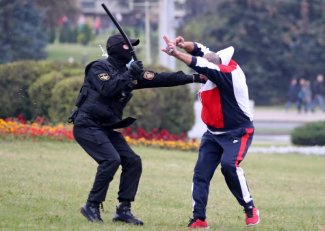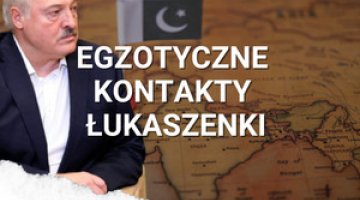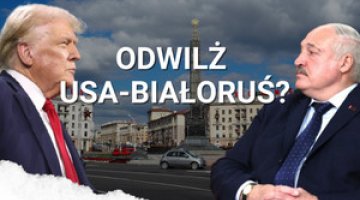Belarus: an imitation of dialogue and intensified repression

On 11 October, another weekly mass demonstration by Alyaksandr Lukashenka’s opponents was held in Minsk. This time it took place under the slogan of ‘the March of Pride’, referring to the moral advantage which the demonstrating citizens enjoy. Between 70,000 and 80,000 people took part in protests in various districts of the capital; this means that the potential for mass mobilisation displayed over the past weeks is being maintained. However, in some larger regional centres (Mahiliau, Homiel), the turnout was so low that the organisation of demonstrations was abandoned, while in others (Brest, Hrodna) it did not exceed 200-300 people. Small demonstrations were also held in other county towns, including Maladzechna, Baranavichy and Zhodzina.
In Minsk, water cannon and occasionally flashbangs were used against the protesters on a large scale. Around 600 people were detained nationwide, as were at least 35 independent journalists. The security forces started their work even before the protests began, and behaved much more brutally than they had in previous weeks (many people were beaten); they were aiming to prevent columns of many thousands of demonstrators from forming. Individual groups of demonstrators were brutally beaten and detained in courtyards and side streets. Despite the protest’s peaceful nature, the officers’ aggressive actions provoked several street fights, during which the demonstrators were shot with rubber bullets. The Sunday demonstrations were preceded for the second week in a row by Saturday actions in which women protested against the violence;, these took the form of small groups walking in the city centre, which again proved an effective way of avoiding arrests.
On 9 October, Lukashenka called a conference in which cabinet members, regional governors and the heads of the institutions of force participated; during the meeting, he recommended purging the state apparatus of disloyal officials, stepping up action against illegal demonstrations to restore public order, and toughening the state media’s narrative. Referring to foreign policy, Lukashenka particularly emphasised the need to show those countries most critical of the regime – Poland, Lithuania, Latvia and Ukraine – that they will incur losses, including economic ones, as long as they continue to keep putting pressure on Minsk. He also emphasised that the main motivation of these states is the need to distract their citizens from their own allegedly ‘catastrophic’ domestic situations. Lukashenka also referred to the events of 9 and 10 August, claiming that he personally prevented an attempted attack on the life of his main opponent, Sviatlana Tsikhanouskaya, by helping her to leave safely for Lithuania. In this way, as he put it, he thwarted attempts by opposition ‘radicals’ to escalate the protests even further. At the same time, on 7 October the Belarusian government issued an international arrest warrant for Tsikhanouskaya, which Russia also recognised.
On 10 October, Lukashenka unexpectedly held a meeting with some of the political prisoners being held in the KGB’s detention centre in Minsk, including one of his main opponents, Viktar Babaryka, and two members of the presidium of the opposition’s Coordination Council, Lilia Ulasava and Maksim Znak. According to the terse official communiqué issued thereafter, the subject of this meeting (which lasted over four hours) was the constitutional reform which the government is planning. As a result, on 11 October the president of the IT company PandaDoc, Dzmitri Rabtsevich, and a representative of Babaryka’s staff, Yuri Vaskrasensky, obtained permission to be transferred to house arrest. In an interview with state television, the former assessed the conditions prevailing in the country for the IT industry in positive terms, and insisted that his business activity in Belarus would continue; the latter, for his part, declared he is ready to participate in preparing the constitutional changes and drawing up a series of recommendations to ease the solitary confinement regime for ‘less dangerous’ political prisoners.
Commentary
- The marked increase in the aggression employed by the law enforcement forces is a sign that the authorities are running out of instruments to restrict the ongoing large-scale protests in Minsk, which remains the opposition’s main focus of activity. Government forces have been quite effective in extinguishing the street activity of its opponents in the provinces, which may have been an incentive for the regime to crack down. It should be noted, however, that the aggressive actions taken by the officers in the capital on 11 October did in some cases trigger a firm response from the demonstrators, which may risk an escalation of violence. In a broader sense, the president’s meeting with senior representatives of the state apparatus heralds a further tightening of domestic and foreign policy. In practice, this will mean an increase in repression against the public, purges within the administration and a strengthening of the confrontational narrative towards the West.
- It seems that the talks held on Saturday with opponents in the KGB detention centre on the subject of political changes, together with the violence against the participants in the demonstrations on Sunday, represent a deliberate strategy on Lukashenka’s part. In this way, he intends to show that dialogue with the opposition is only possible on the authorities’ conditions, that is, within the framework of the so-called constitutional reform announced by the government. All other activities by the regime’s opponents, including illegal demonstrations, will be firmly suppressed. This has been accompanied by attempts to finally discredit Tsikhanouskaya as someone who is allegedly weak and susceptible to pressure, while at the same time being burdened with the status of a person on an international ‘wanted’ list.
- The statements made by Rabtsevich and Vaskrasensky, who have been transferred to house arrest, were undoubtedly made under pressure from the regime. It can be assumed that in exchange for easing their conditions of imprisonment and the possibility of continuing their activities, both of them have agreed to play the role of ‘constructive’ opponents of the regime, who can be juxtaposed with the ‘radicals’ demonstrating in the streets, and can also be used to weaken the morale of the rest of the opposition. It is possible that these actions will lead to additional divisions within what is already a poorly coordinated democratic camp. Forcing a declaration of loyalty from the head of PandaDoc may also be an attempt to stop companies from the IT sector – which are important for the Belarusian government in both financial and image-making terms – from shifting their operations to other countries. The question remains as to whether the role of ‘licensed’ opposition leaders will be assumed by other figures in detention, including the popular Babaryka. At the same time – considering the still high level of public discontent – it is hard to imagine that such attempts to limit the protest movement will prove effective. Moreover, the regime’s rising use of violence may further aggravate the political crisis, which has now been going on for more than two months.





